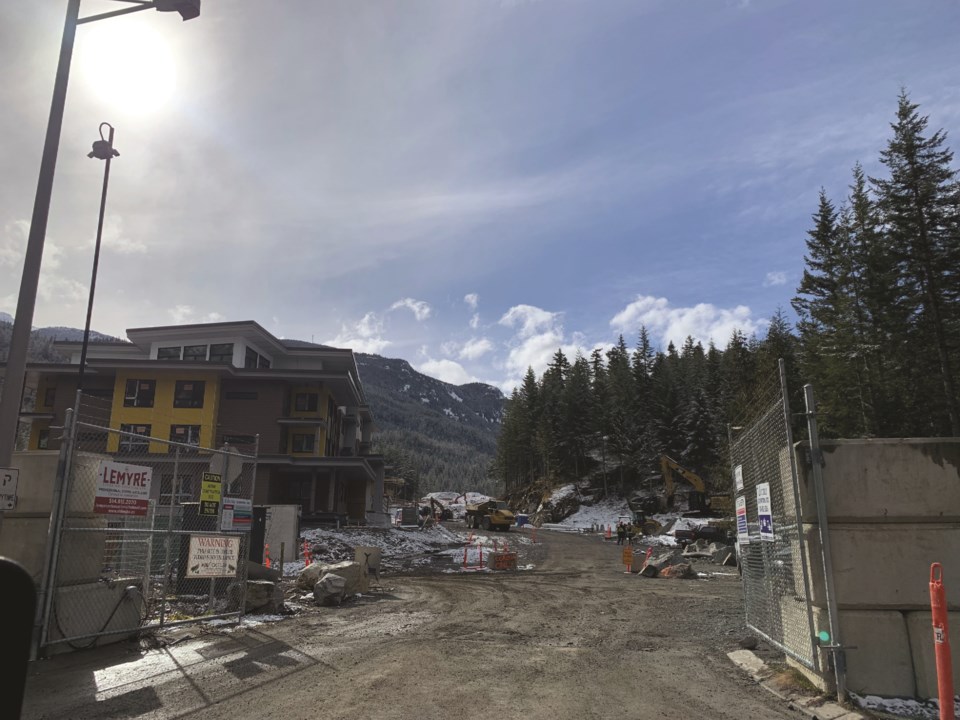Based on ample feedback from the community over the past two and a half years, the Whistler Housing Authority (WHA) has made major changes to how it structures rental rates as well as eligibility criteria for affordable rental housing applicants.
At the regular meeting of council on Tuesday, April 5, elected officials adopted the amendments to council’s existing employee housing policy after the WHA heard from more than 800 program participants and applicants since the municipal subsidiary last tweaked eligibility and rental rates in 2019. Prior to the amendments, income and asset maximums were used to determine rental rates via the Rental Category Framework, which included six income and asset levels for each bedroom category.
While the framework was designed to get close to a household’s 30-per-cent income threshold—the maximum limit most experts recommend a household spend on rent to be considered affordable—“that intention has had mixed results,” noted Marla Zucht, general manager of the WHA.
“Depending on the tenant’s current income and asset levels, they can end up bouncing between the six different rent categories, therefore creating instability and insecurity in their housing situation.”
This was a common refrain heard by local Alicia Lafon after she posted to the popular Whistler Winter Facebook group last month asking for people’s accounts of how the WHA’s 2019 changes to eligibility and rental rates have created unintended challenges.
“The income brackets on these categories [can] change year by year, without prior notice to tenants,” Lafon relayed in an email.
Some tenants told Lafon, while others reported directly to the WHA, that they chose to turn down extra work or reduced their hours of employment to avoid being bumped into a higher rental category.
“My dilemma is that I’d like to be increasing my income to save or to be approved for a purchase of a WHA house, but increasing my income causes a rent increase,” one single mom relayed to Lafon in a private message that was shared with Pique, with the tenant’s permission.
The extensive community feedback the WHA heard helped inform its decision to move to a simplified structure that sets a tenant’s rent at 30 per cent of a household’s gross income, subject to minimum and maximum rental rates that are dependent on unit type. For reference, the minimum rental rate for a studio in the Chiyakmesh building at 1060 Legacy Way is $868 per month, while the maximum rate is set at $1,639.
“Something that we often throw around is the [term] ‘affordable housing’ and what does affordable housing mean? Something is affordable to someone,” said Whistler Councillor and WHA board chair Jen Ford at the April 5 meeting. “But what this is, is attainable housing. This is housing that is guaranteed to be safe and [offers] long- term tenancy agreements that give you the clarity and consistency that you can [use to] set down roots and stay in the community.”
The other substantive change passed at the April 5 council meeting effectively replaces a net asset test for WHA rental applicants, a process that turned out to be overly complicated for prospective tenants and cumbersome to administer for WHA staff. Prior to the amendment, applicants needed to disclose all of their savings, bonds, stocks, mutual funds, term deposits, and any personal or business real estate.
“It’s a lot,” Zucht conceded. “Quite often this information is incomplete because it is not well understood on what exactly needs to be disclosed. It often is also time-consuming to administer, and in actuality, it’s next to impossible to comprehensively verify all of the documentation.”
Feedback to the WHA indicated the asset limits negatively impacted program participants’ “ability to save for the future, as more savings will mean paying a higher rent, which then affects their housing affordability,” said Zucht. “It also negatively affects those who are self-employed, or local business owners and seniors, who may have higher asset levels associated with their businesses and their retirements.”
Instead, the WHA will move to a simplified and easier-to-verify market housing ownership restriction, meaning anyone who already owns market housing in B.C. is ineligible.
“It maintains an asset test for the rental program but is much simpler to understand for program participants and is easy to verify, therefore it’s less vulnerable to abuse,” Zucht said.
On that note, the WHA and municipal staff are working on a future report to council that will include recommendations on improving the enforcement of eligibility requirements and WHA rules.
“I like the conversation tonight around compliance and enforcement,” said Coun. John Grills. “It’s so expensive and so much work to build this housing, [we have] to make sure that it’s being used the way it was designed.”
Existing WHA tenancy agreements will remain in place, unless a tenant volunteers to move to the new rent-geared-to-income framework, which will require a new tenancy agreement to be drafted. The WHA will prioritize tenants who will see their rents lower under the new rate structure.
Always intended to be an evolving framework, Whistler Mayor Jack Crompton said the WHA rental policy will continue to be tweaked, if needed, based on input from the public.
“We promised we’d improve this policy over time based on community feedback. These changes do that,” he said. “I’m glad this kind of iterative approach will continue. It allows us to learn what’s working, what’s not and adjust accordingly.”
For more information, visit whistler.ca/services/housing/about-whistler-housing-authority.




